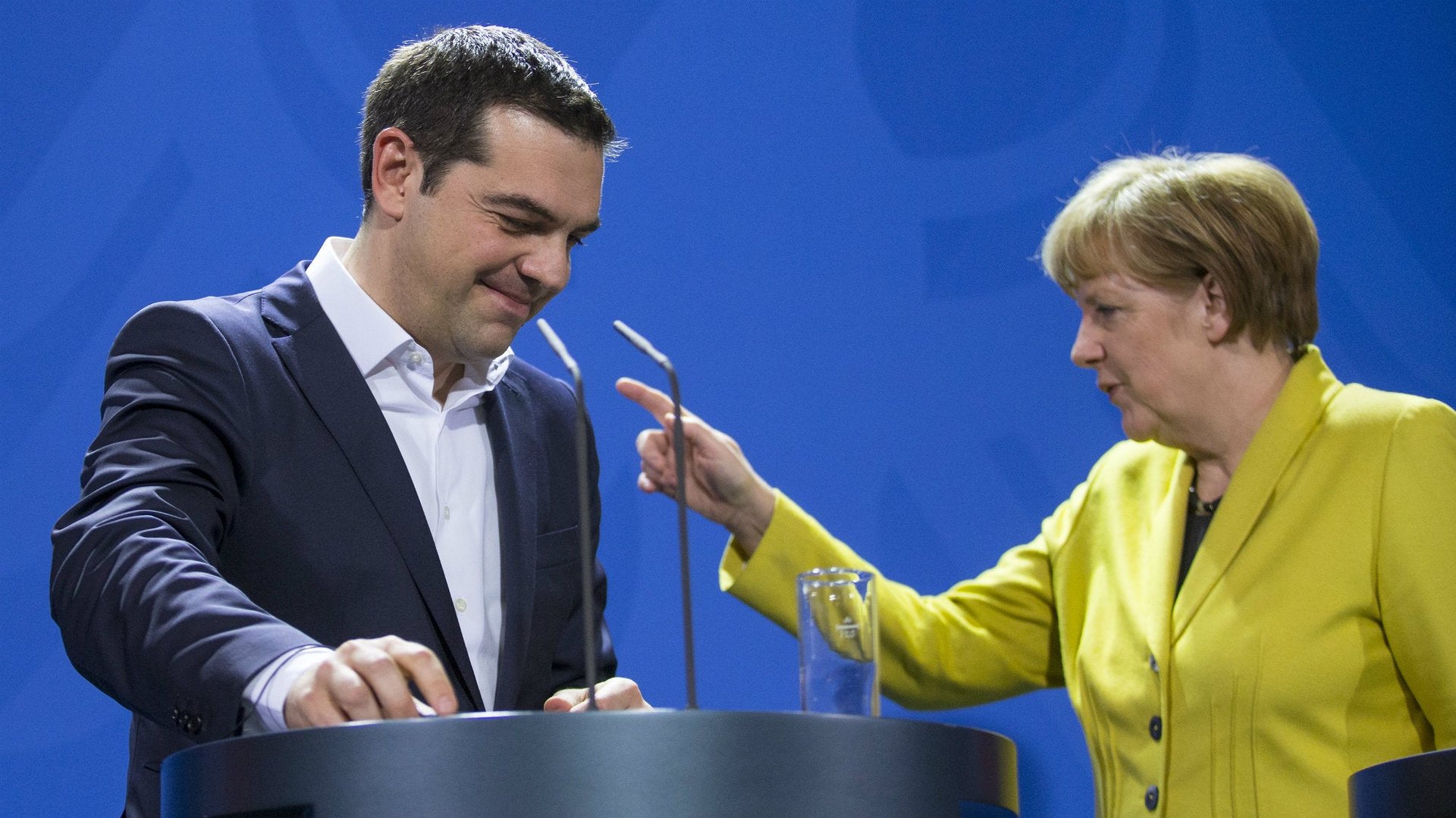The Greeks got to vote. Now the rest of the euro zone will get its turn
For Greek prime minister Alexis Tsipras, the resounding rejection of creditors’ latest bailout proposal in a referendum was, first and foremost, a “victory of democracy.” The country will never succumb to “blackmail” by lenders, he said, as its voters proved at the polls.


For Greek prime minister Alexis Tsipras, the resounding rejection of creditors’ latest bailout proposal in a referendum was, first and foremost, a “victory of democracy.” The country will never succumb to “blackmail” by lenders, he said, as its voters proved at the polls.
Tsipras is in Brussels today, presenting his government’s counterproposal to creditors. For all of his soaring rhetoric about drawing strength from the people’s mandate, he is about to get a taste of his own medicine.
Any new bailout funding from the euro zone will come from the bloc’s €455-billion ($498-billion) rescue fund, known as the European Stability Mechanism. Tapping that fund requires majority approval from 80% of members’ votes, and Germany holds 27% of the voting rights, giving it an effective veto. For good measure, Estonia, Finland, and the Netherlands also must put any request for bailout funds to a vote in their national parliaments (pdf, p. 5).
This is also democracy, as German chancellor Angela Merkel said recently (link in German). Unfortunately for Greece, German taxpayers’ exasperation with successive bailouts is plain to see. Finance minister Wolfgang Schäuble, demonized in Greece for his tough stance on austerity, has seen his popularity soar at home.
Other euro members have shown even less tolerance for Greece’s tactics during bailout negotiations. Poorer euro countries, as a group, aren’t particularly moved by Athens’ pleas. Slovakia’s finance minister Peter Kažimír said Greece’s referendum “cannot mean that they will get the money easier.” Dutch prime minister Mark Rutte warned Greece against coming to the latest round of talks with a “fluffy story.”
To get these leaders on side, Greece needs to engage in a “rhetorical disarmament,” Christian Odendahl, chief economist at the Centre for European Reform think-tank, tells Quartz. The ouster of feisty finance chief Yanis Varoufakis is a step in this direction, as is a cross-party agreement published yesterday that commits to “reliable reforms.”
And although a majority of euro-zone leaders may be as interested in preparing for the fallout from Greece’s ejection from the euro as they are in entertaining a renewed bailout, Athens still has some important allies. Italian officials are open to a deal, and France’s finance minister Emmanuel Macron has warned that the inflexibility of creditors risks forcing Greece into another Treaty of Versailles, the onerous 1919 agreement that saddled Germany with punitive reparations after World War I, setting the stage for World War II.
When leaders start to reach for those sorts of metaphors, it’s a sign that the talks aren’t going so well. The worst case, Odendahl says, is that Greece’s economic crisis may eventually become so severe that it erodes all of the political common ground necessary to solve it. At that point, domestic democratic pressures harden to such an extent that no side is willing to budge, and Greece’s cash-strapped economy completely collapses, with uncertain consequences for the rest of the euro zone.